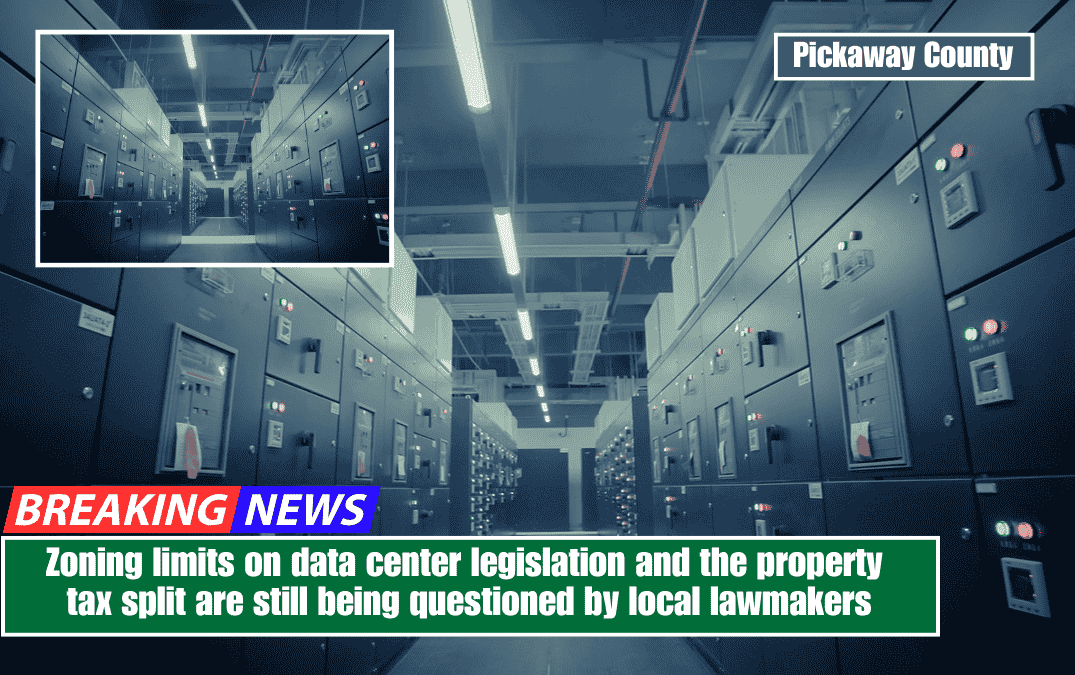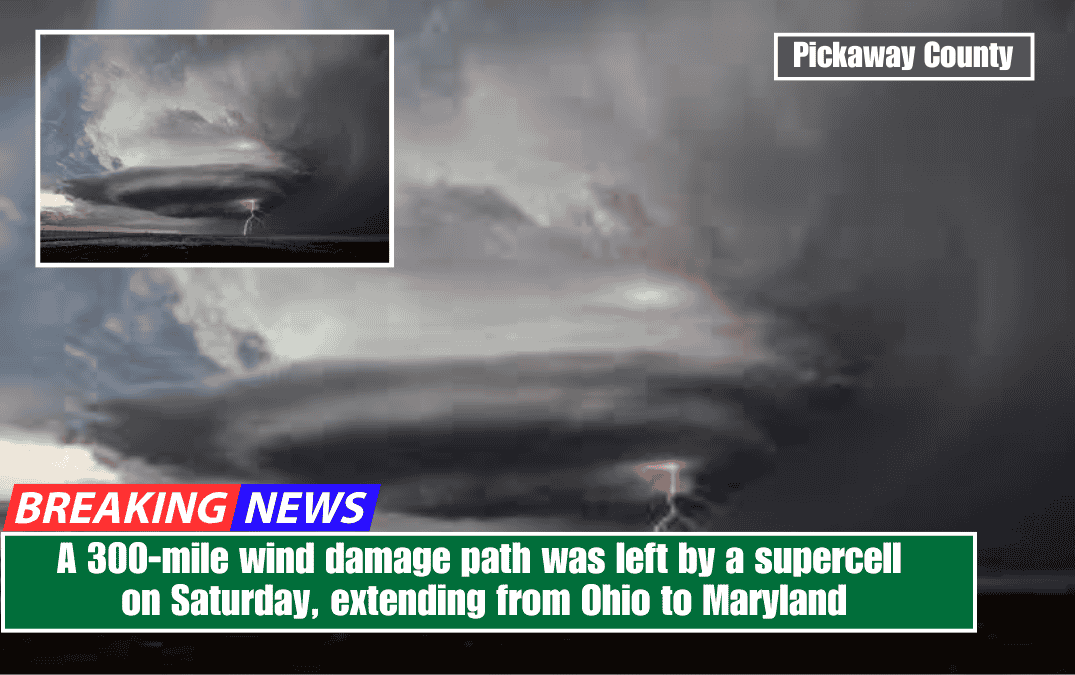Local officials continue to express concern about the impact of recently passed legislation encouraging potentially lucrative data center development on tax revenue and community regulation.
“My concerns about HB 2014 remain even after the bill was passed. I believe Governor Morrisey and the legislature intended to create a new revenue stream for the state while also encouraging data center projects to consider West Virginia,” said Morganne Tenney, executive director of the Putnam County Development Authority.
“However, with the county restrictions and taxation language added to the ‘microgrid bill,’ I fear that counties will ultimately shy away from these types of projects.”
On the final evening of the regular session, lawmakers approved one of the governor’s priorities, which aims to enable developers, particularly data centers, to use localized, self-sufficient energy systems.
During the legislative session, one of the main topics of discussion was how the bill would affect counties that rely on property taxes for funding. The bill directs associated tax revenue to several funds, one of which is intended to assist West Virginia in lowering its personal income tax rate.
The bill was amended several times during its legislative journey. Upon final passage, the bill’s funds were allocated to various areas:
50 percent for a personal income tax reduction fund.
30% to the county(s) where the data center is located;
10% will go to all counties on a per capita basis.
5% will be used for an economic enhancement grant fund.
5% goes toward an electric credit stabilization and security fund.
Tenney claimed she was repeatedly told that there is enough money to go around and that the bill is required to secure data center projects.
“I disagree with both points,” she said, claiming that a $5 billion project could have generated $2 to $3 million in tax revenue for a county commission and $3 to $4 million for schools.
“A lot to a community, but I’m not sure if the amount would be transformative for the state as a whole.” “How many massive data centers can we land in the Mountain State?” Tenney said.
She added that the dollar amount is based on “an incredibly competitive data center incentive we have in West Virginia through the High Technology Valuation Act, which taxes servers at 5% salvage value; that to me is already a huge incentive for a project.”
Second, Tenney stated that even without the bill, data center projects are already underway throughout the state.
“Yes, there may be some projects that needed the microgrid portion of this bill to move forward, but did they need the taxation and regulation language?” she said.
“What about the remaining ‘high impact data center’ projects? What about counties that have been pursuing projects for months or years? This takes their feet out from under them in the eleventh hour.”
‘Single biggest economic development bill’
HB 2014 establishes a Certified Microgrid Program and a High Impact Data Center Program in West Virginia to attract and support these industries.
Governor Patrick Morrisey and his administration have emphasized the bill’s focus on data centers, which are physical facilities that house computer structures such as servers and storage.
Data centers are massive energy consumers, and this is only expected to increase as artificial intelligence and other computing innovations gain traction.
They are common in neighboring Virginia, but their aesthetics and noise have sparked controversy among residents. They are not major employers, but they do contribute significantly to local property taxes.
Morrisey, speaking on MetroNews Midday this week, described passing “the single biggest economic development bill in many, many years.”
The governor believes the framework will spur job growth in related sectors, such as construction, as well as sustained demand for West Virginia-produced energy sources.
“So it feeds into the entire system. So you need a lot of economic development, and this is the first thing that’s been done in many, many years to make it very appealing for a new industry to come in, because we’ve never been successful in that area before,” Morrisey explained.
‘A lack of value the state has on county government’
Greenbrier County Commissioner Tammy Tincher said she appreciates lawmakers’ concerted effort to ensure counties receive increased tax revenues from data centers located in their regions, as well as recognition for counties that may not have the opportunity to locate a data center but can still benefit financially.
However, she claimed the legislation fell short.
“I believe it is critical to have local governments represented on these projects, so I am disappointed that changes to include any local input for planning and zoning were not included. Tincher stated that economic development creates numerous opportunities for citizens in the site county, as well as those in surrounding counties and the state.
“However, the local site county bears an increased responsibility for public safety and other infrastructure to ensure the success of these projects.” The allocation, while appreciated, demonstrates the state’s lack of regard for county government and the services it provides to residents and businesses.”
Restrictions on local regulation
The bill states that certified microgrid districts and certified high impact data centers are exempt from county or municipal zoning, horticultural, noise, viewshed, lighting, development, or land use ordinances, restrictions, limitations, or approvals.
The legislation also states that certified developments will not be subject to county or municipal building permits, inspections, or code enforcement.
Delegate Evan Hansen, D-Monongalia, expressed concerns about local control throughout the regular session. He unsuccessfully proposed a floor amendment to strike the section of the bill that restricted local control.
He brought up the points again during an interview last week.
“I’m concerned that these microgrid districts are heavy industrial districts that would include not just data centers, which could be loud or have other impacts, but also power plants; they could include coal or gas or nuclear plants, and they could also include solar ad wind,” Hansen told CNN.
“And I believe it is critical that any local ordinances governing setbacks, noise, traffic, or other types of local issues be retained. I don’t believe it’s appropriate to simply ignore local ordinances and impose large industrial developments in areas where they may have an impact on residents.
He added that there are numerous locations in West Virginia that would be suitable for data centers and microgrids. “The question will those go into those appropriate places or will they go into places where they’re not wanted?” came up.
Hansen, like local officials, questioned whether it is wise or fair for the state to redirect property taxes that would otherwise be paid to local governments.
“To be clear, if that money was not commandeered by the state and then reallocated according to this formula,” Hansen said, “it would go to the local governments because that’s where local property taxes go according to state code.”
He continued: “It’s a philosophical question to some extent about whether that’s their money or whether it’s the state’s money to use for the state’s own priorities, but I think you also have to recognize that counties might incur some additional costs if these large developments come in — so there’s a good reason why the additional property taxes should go to the county.”















